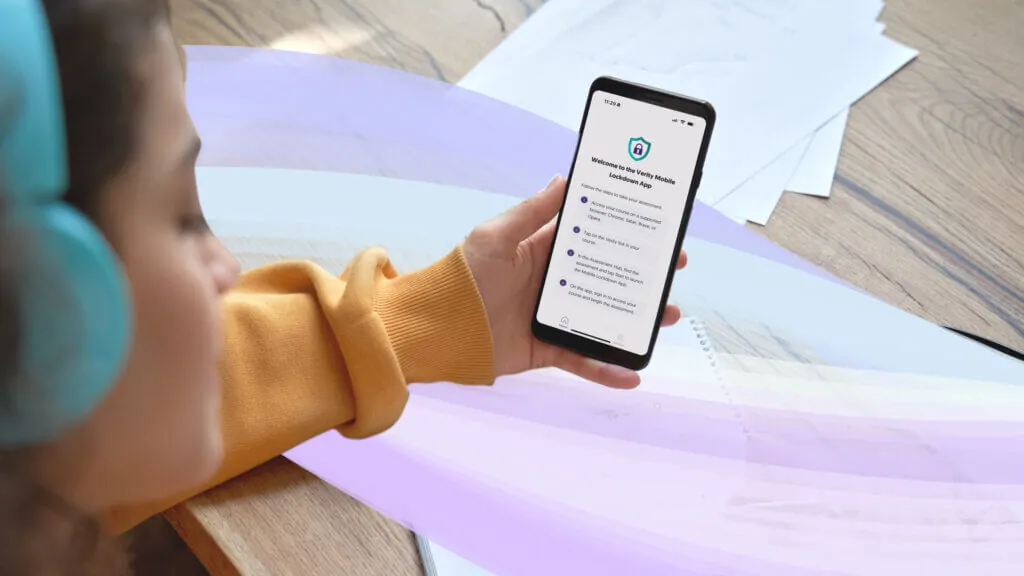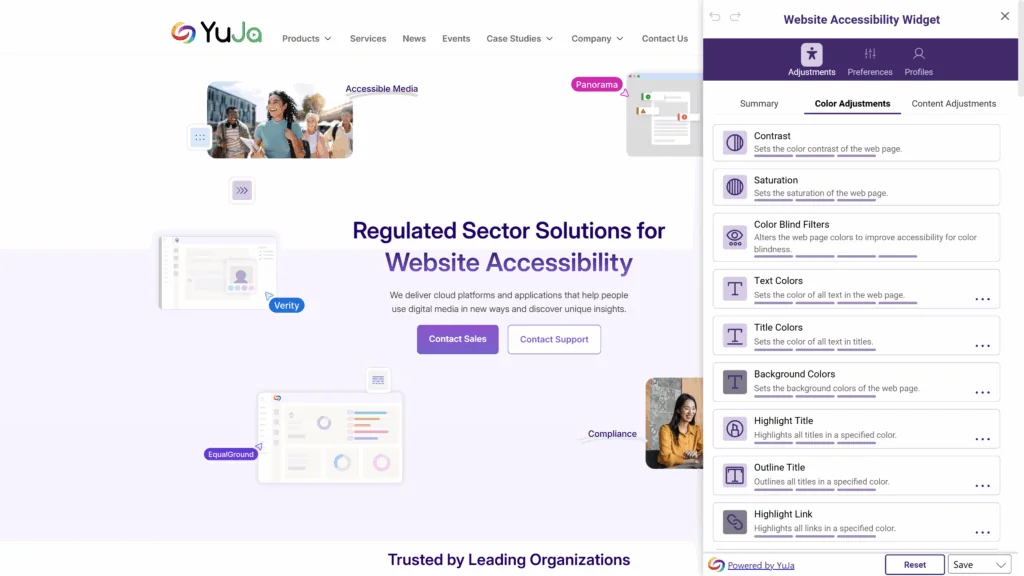In fact, one study found that 85.8% of students felt more stressed taking electronic exams than traditional paper-based tests, and 91.6% reported enough anxiety to cause poor performance from being watched via webcam.
Exam-related anxiety isn’t new, but online formats introduce additional concerns: unfamiliar software, unpredictable technical issues, and worries about being unfairly flagged for behavior like looking away or adjusting headphones. Add to that the sense of isolation from taking a test in a non-traditional environment, and it’s easy to see why students may feel overwhelmed.
How to Help Reduce Text Anxiety with AI-Assisted Proctoring
As instructors create exams and institutions scale their assessment strategies, AI-assisted proctoring can play in reducing — rather than adding to — student anxiety. To help students feel more comfortable:
1. Reduce the Feeling of Constant Surveillance: AI-assisted proctoring can discreetly monitor for potential issues in the background, flagging only behaviors that may require review. This can help reduce the pressure students feel when they’re aware of being closely watched.
When live proctoring is used, thoughtful implementation can also ease anxiety. Features like real-time chat with a proctor, available in YuJa Verity, let students ask quick questions or receive clarification without disrupting the test flow — adding a layer of human support without unnecessary pressure.
2. Provide Clear, Guided Prompts: Automated pre-checks like verifying a student’s camera, microphone, and internet connection can help remove technical uncertainty before the test begins. For example, YuJa Verity’s built-in system diagnostics walk students through the setup, helping them start exams smoothly and with fewer last-minute concerns.
Clarity and consistency in instructions also matter. A well-designed interface with clear visual cues can ease student nerves and help them feel in control.
3. Support Flexible, Familiar Testing Environments: Enable students to test on a range of devices and operating systems helps reduce access-related stress. Ideally, support both desktop and mobile devices, with secure lockdown options for each. This flexibility allows students to take assessments in spaces they’re comfortable with, which can go a long way toward easing anxiety.
4. Use Data to Identify Patterns: While proctoring tools are designed to flag possible integrity concerns, they also offer valuable insights into student experiences. For example, patterns in flagged behavior might highlight areas where instructions were unclear or where test format may be causing confusion. When instructors use this data to improve exam design, they contribute to a more supportive testing environment in the long term.
5. Prioritize Transparency: One of the most effective ways to reduce test anxiety is to demystify the process. Let students know what’s being monitored, how data will be used, and what to expect on exam day builds trust and confidence.
When implemented thoughtfully, AI proctoring tools can transform online assessments from a source of anxiety into a more comfortable, secure testing experience. By focusing on student support rather than just surveillance, institutions can maintain academic integrity while prioritizing student well-being.







